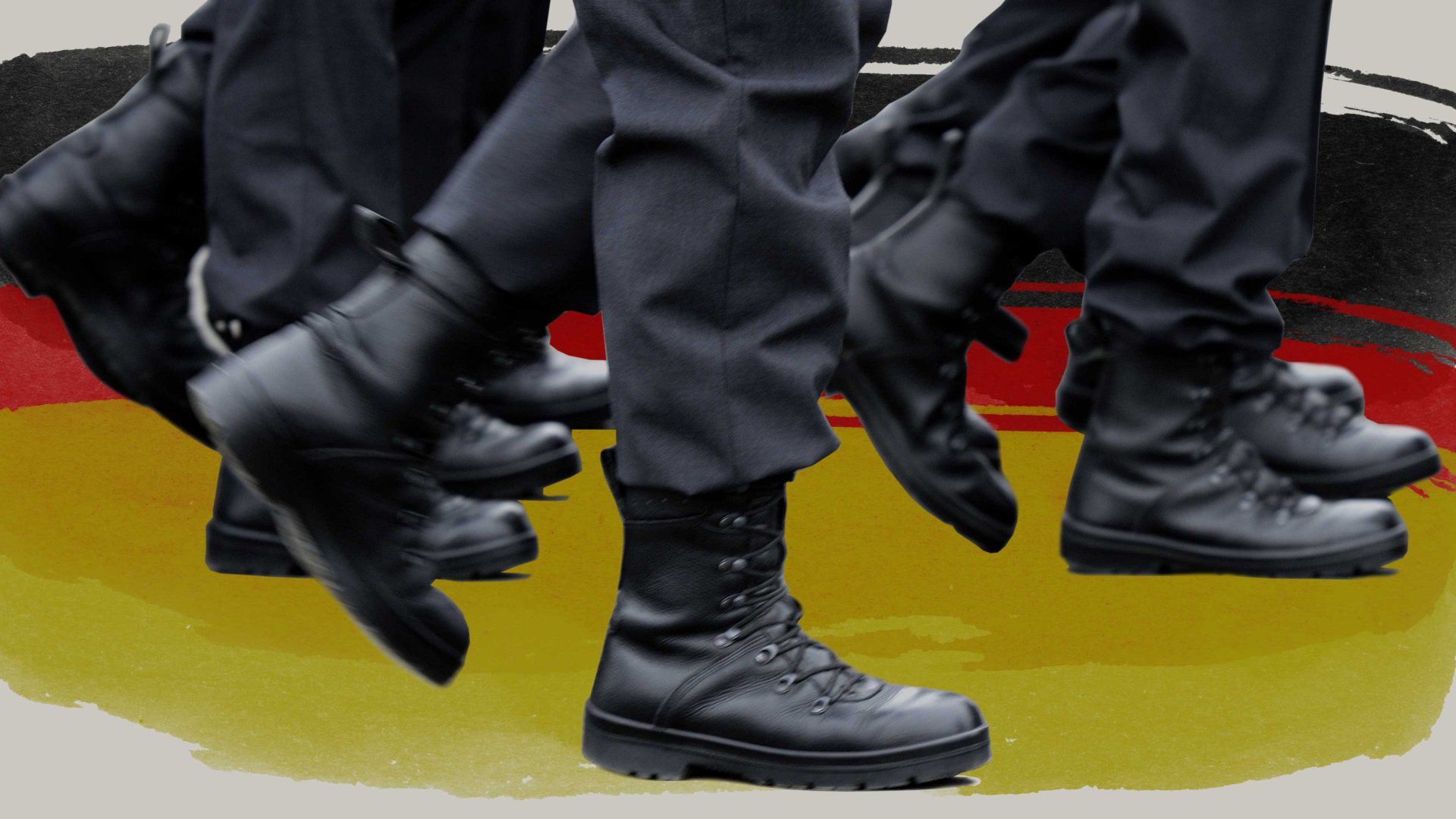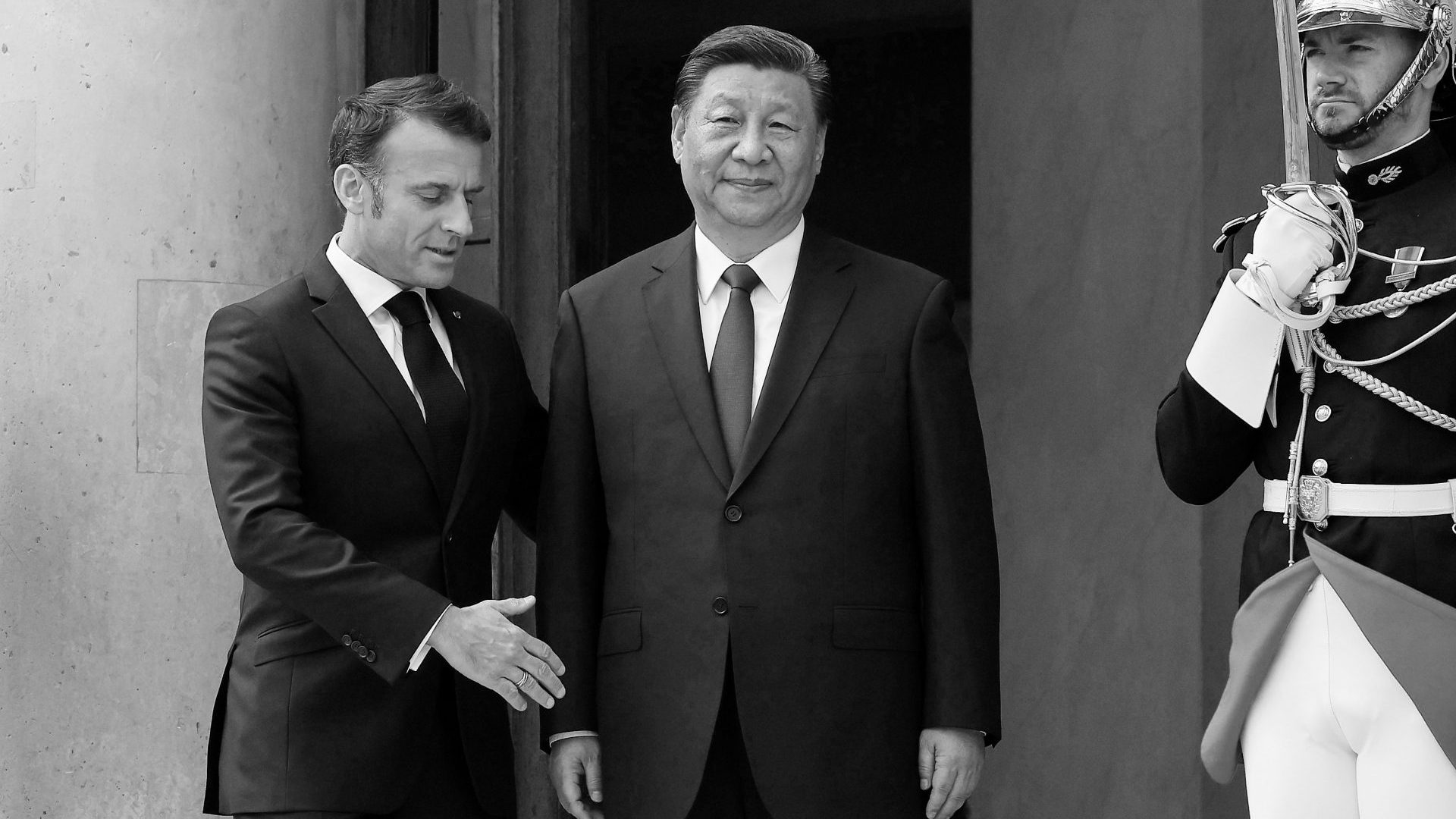When I turned 18, very much in the last century, I got a letter from the army. “Sehr geehrter Herr Koch”, it began, inviting me, like “all other male German citizens of age”, to the Musterung, the grand old army physical.
You may have already spotted a minor detail overlooked by the Bundeswehr: my gender. My first name had puzzled them. But unlike my male friends, I could head straight to university, while they had to do 11 months of marching and saluting, or doing social work as Zivis.
This all ended in 2011, when Germany bid adieu to conscription (and the social service sibling, Zivildienst). It was only “suspended”, however, a decision that will come in handy soon.
Elsewhere in Europe, the UK ditched conscription back in 1963, Belgium in 92, France in 98 and large parts of the continent followed suit in the noughties. With only Austria, Cyprus, Denmark, Estonia, Finland, Greece, Switzerland and Turkey standing firm, the “end of history” (Fukuyama) had seemingly arrived.
A half-century without a conflict west of the Balkans, peace reigned supreme. The era of huge, costly armies with hundreds of thousands of reservists dwindled, making way for leaner, full-time military squads, specialising in new threats.
Interestingly, it was a conservative government that pulled the plug on conscription in Germany. With a clear upside: a generation of young women was spared dodging those dreary Bundeswehr stories at parties, where chaps prattle on about a nasty Ufz or StUfz, short for (Stabs-)Unteroffizier (staff sergeant), or vehicles called leopard, puma, marten, fox or wolf. Or snow bivvies with the Gebirgsjäger – the mountain infantry popular with posh kids. Bored yet? I was.
On the downside, however, the composition of the Bundeswehr underwent a seismic change. The ideal recruit was and still is the Staatsbürger in uniform: the citizen-soldier, as much part of society as the military. Wehrdienst bridged social divides as men from different backgrounds shared the same barracks.
Today’s Bundeswehr isn’t the melting pot it once was, and this being Germany, soldiers – no matter how much good it has done for decades – still lack the respect they deserve. There is, for instance, opposition to officers in uniform visiting schools to inform pupils about military careers.
As a result, the army is short-staffed. Roughly 10,000 volunteers enlist for military service, leaving Comrade Putin unimpressed. We need three to four times as many to bring overall numbers from 180,000 to 220,000.
And why does this matter? Well, consider this: Germany has six submarines, which need 200 navy men and women to keep them afloat. Reliably, we fail to reach this number year by year. Even if the machinery worked (big if), we are short-staffed.
Enter Boris Pistorius, Germany’s most popular Social Democrat and the first defence minister for 11 years to actually have served in the Bundeswehr. He is publicly promoting a return to conscription.
We’d be late to the party: Russia’s annexation of Crimea in 2014 prompted Lithuania and Ukraine to reintroduce conscription (imagine where Ukraine would be today if they hadn’t). Norway took it a step further, as the first European country to make military service mandatory for women, too. And in 2018, Sweden also returned to conscription, as there weren’t enough volunteers.
After Russia’s full-scale attack on Ukraine in 2022, Latvia rolled up its sleeves, obliging men aged 18-27 to do 11 months of military service. Poland opted for a voluntary, paid general military service. The Dutch are looking into a Scandinavian-style model, given that a quarter of positions are unmanned. Denmark, for instance, only calls up conscripts if there are not enough volunteers.
Back in Germany, Pistorius has three options. The first is a PR stunt, really, to reach out to every single German 18-year-old – around 700,000 – with brochures and questionnaires.
The second seems more promising: it would be mandatory for men to complete an online questionnaire and a possible physical examination. The third is the most radical: gender-neutral conscription. Which would be a non-starter without a social service equivalent, legal experts say, to create equal choices and conditions.
This would need a logistical and constitutional overhaul; so don’t hold your breath. But one day, German lads and ladies alike might swap tales of boot camps and obstacle courses – and perhaps they’ll be a tad less yawn-inducing if everyone’s in on the action.




